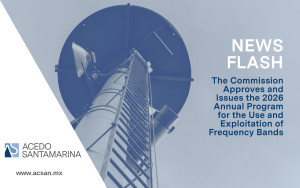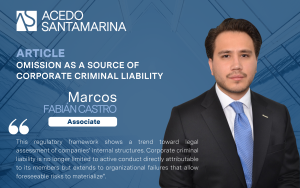In Mexico, all entities, whether individuals, corporations, trusts, foundations, or other similar structures, are required to identify their Controlling Beneficiaries. These individuals are those who receive benefits from the entity or exert influence over it, as detailed in the previously published article by Aliza Palatchi. Failure to comply with this obligation may result in fines ranging from five hundred thousand Mexican pesos to two million Mexican pesos for each unidentified Controlling Beneficiary.
Identifying Controlling Beneficiaries can be a complex process, involving an understanding of the entity’s structure and the collection of potentially sensitive information. Furthermore, this information must be kept up-to-date in the event of changes in the ownership or structure of the entity itself.
On September 22 of this year, the Judicial Weekly of the Federation published two legal precedents issued by the Second Chamber of the Supreme Court of Justice of the Nation (“SCJN”), which discuss the constitutionality of the obligation to obtain, identify, preserve, and provide the Tax Administration Service with information on Controlling Beneficiaries.
In the first jurisprudence, the SCJN states that the obligation to identify the Controlling Beneficiary does not violate the principle of legality, as it aligns with the international commitments of the Mexican State concerning the exchange of information to prevent illicit financial activities and tax evasion.
In the second jurisprudence, the SCJN determined that the same obligation similarly does not affect the principle of legal certainty, as anyone falling within the category of Controlling Beneficiary fits the description of “any legal figure.”
These legal precedents will become effective on September 25, 2023, and they are significant because they restrict potential defenses that taxpayers may raise against these demanding obligations.
In Acedo Santamarina, we possess substantial experience and expertise to ensure compliance with all obligations related to the Controlling Beneficiary. Our team of experts in corporate and regulatory law stands ready to offer tailored advice and solutions to meet your specific needs.
Thesis of jurisprudence 52/2023 (11th.). Approved by the Second Chamber of this High Court, in private session of August thirtieth, two thousand twenty-three.
Thesis of jurisprudence 51/2023 (11th.). Approved by the Second Chamber of this High Court, in private session of August thirtieth, two thousand twenty-three.
Rodrigo Flores
Associate




